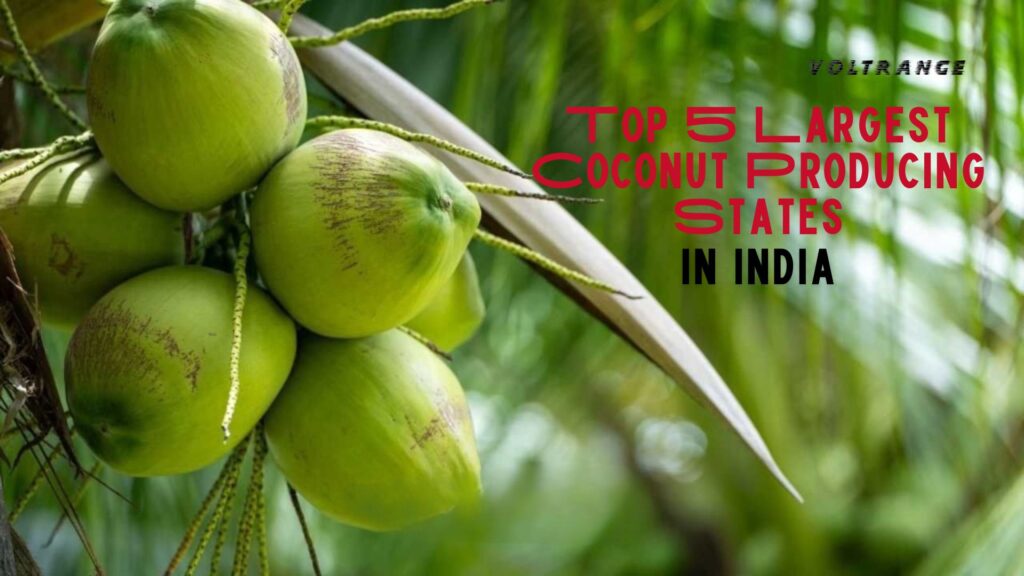
Top 5 Largest Coconut Producing States in India
India stands as a significant contributor to the global coconut industry, ranking among the top producers worldwide. Coconuts are cultivated extensively across several states, making a notable impact on the country’s economy and providing vital livelihoods to numerous farmers. Known for its diverse uses, from culinary applications to industrial purposes, the coconut plays an essential role in India’s agricultural landscape. Here’s a closer look at the top five coconut-producing states in India for this season.
1. Karnataka
Karnataka remains one of India’s leading coconut-producing states, known for its favorable climate and innovative farming techniques. The districts of Dakshina Kannada, Udupi, and Uttara Kannada are the primary coconut hubs within the state, contributing significantly to its high yield. Karnataka’s success is driven not only by modern agricultural practices but also by its commitment to reducing production costs. By adopting state-of-the-art farming innovations, Karnataka continues to maintain its position as a top coconut producer.
2. Tamil Nadu
Tamil Nadu has long been admired for its expertise in palm cultivation. The coastal regions of the state, including districts like Thanjavur, Tiruchirappalli, and Kanyakumari, provide the ideal environment for coconut trees to thrive. With government support and sound agricultural policies, Tamil Nadu has built a strong foundation for its coconut industry. Consistent production is a hallmark of the state, and its commitment to sustainable farming practices has further cemented its place as one of the top coconut producers in the country.
3. Kerala
Kerala’s association with coconuts is deeply rooted in both its culture and economy. The state’s lush landscapes are dotted with coconut palms, making it a natural hub for coconut cultivation. Districts such as Thrissur, Malappuram, and Kozhikode are major contributors to Kerala’s impressive coconut output. The state benefits from rich soil and abundant rainfall, creating an ideal environment for coconut farming. Kerala’s focus on organic farming and traditional cultivation methods has helped it maintain its reputation as the top coconut-producing state in India.
4. Andhra Pradesh
Andhra Pradesh is emerging as a key player in India’s coconut industry, not only as a production hub but also as a major distribution center. The coastal districts of East Godavari, West Godavari, and Krishna are particularly well-suited for coconut farming. The state’s forward-thinking agricultural policies and investments in infrastructure have played a pivotal role in its success. Additionally, irrigation projects and ongoing research aimed at improving coconut yields are helping Andhra Pradesh strengthen its position in the Indian coconut market.
5. West Bengal
West Bengal shows great promise as a coconut-producing state, with vast plantations across its coastal and plain regions. Districts such as South 24 Parganas, North 24 Parganas, and East Medinipur are key areas for coconut cultivation. Despite challenges such as soil salinity and frequent cyclones, West Bengal’s farmers have demonstrated resilience and adaptability. The state government’s support, through subsidies and technical assistance, has further aided the development of coconut farming in the region, ensuring a steady growth in production.
Conclusion
India’s coconut industry thrives on a combination of favorable agro-climatic conditions, skilled farmers, and supportive government policies. The top five coconut-producing states—Karnataka, Tamil Nadu, Kerala, Andhra Pradesh, and West Bengal—showcase the country’s agricultural expertise and effective use of natural resources. Through innovation and a focus on sustainability, these states continue to elevate India’s standing in the global coconut industry, ensuring economic growth and a stable livelihood for many. The future looks bright as these regions push forward with strategies that promise continued success in coconut farming.





More Stories
which of the following statements is true about education and lifetime earnings? Complete Guide Here
Statekaidz.com: Education with Fun For Kids 2025
Top 5 Richest States in India by GDP